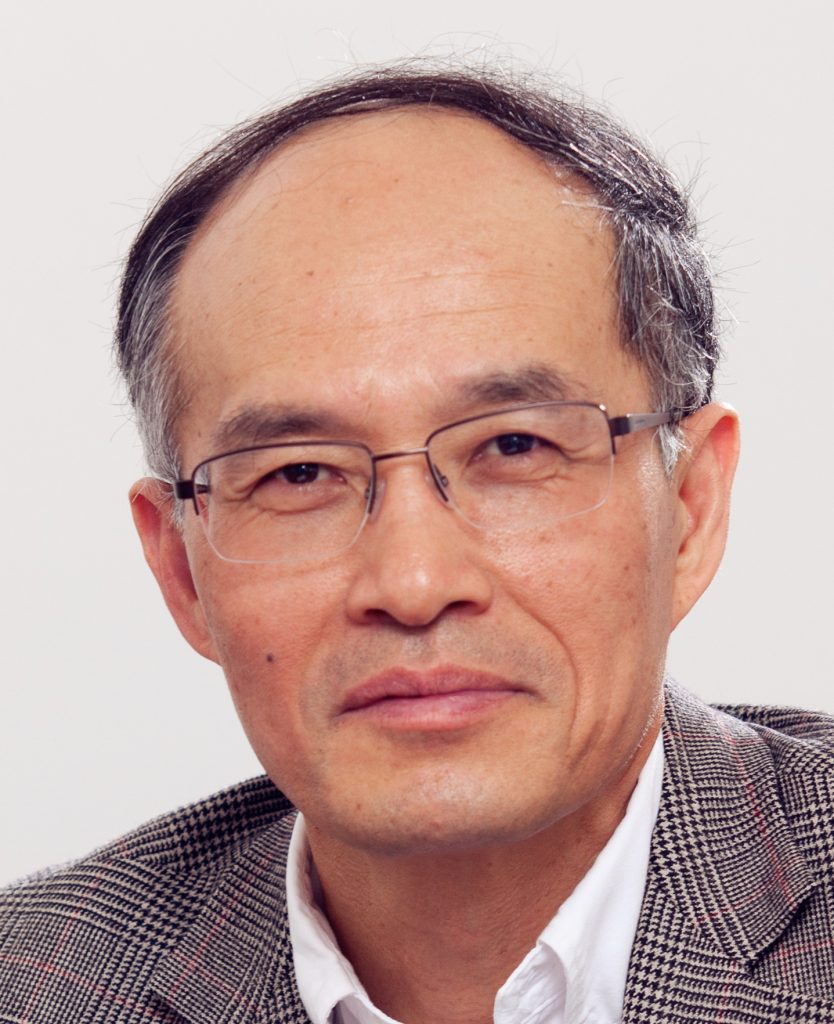Keynote Speakers
AI and Grand Challenges for ITS: Parallel Transportation Systems and Transportation 5.0
With the fast development of Artificial Intelligence (AI), big data, cloud computing, social computing, and IoT technologies, Intelligent Transportation Systems are evolving rapidly into a class of the most comprehensive Cyber-Physical-Social Systems, which provide a wide range of challenges and opportunities for traffic management and control. Especially, although AI and R&D in ITS has achieved its historic prominence, the long-standing question of "Where is the Intelligence in ITS" hasn't been satisfactorily addressed yet. In this talk, I will present our perspective and work on how to enable ITS truly smart, effective and efficient, within the framework of Transportation 5.0 and Parallel Transportation Systems (PTS) based on the ACP approach. The basic ideas of PTS are: 1) modelling and representing real transportation systems using artificial transportation systems; 2) analyzing and evaluating traffic situations by computational experiments; and 3) controlling and managing transportation systems by parallel execution through interaction of real and artificial transportation systems. The ACP based PTS provide a platform to generate big data from small data and then reduce big data to small intelligence for specific tasks via various AI methods, which enables seamless integration of AI techniques into transportation operations. I shall outline concepts, methodology and techniques of parallel transportation systems, its corresponding hardware/software platforms, as well as real-world applications in China over the last decade.
Brief Bio
Fei-Yue Wang received his Ph.D. in Computer and Systems Engineering from Rensselaer Polytechnic Institute, Troy, New York in 1990. He joined the University of Arizona in 1990 and became a Professor and Director of the Robotics and Automation Lab (RAL) and Program in Advanced Research for Complex Systems (PARCS). In 1999, he founded the Intelligent Control and Systems Engineering Center at the Institute of Automation, Chinese Academy of Sciences (CAS), Beijing, China, under the support of the Outstanding Overseas Chinese Talents Program from the State Planning Council and “100Talent Program” from CAS, and in 2002, was appointed as the Director of the Key Lab of Complex Systems and Intelligence Science, CAS. From 2006 to 2010, he was Vice President for Research, Education, and Academic Exchanges at the Institute of Automation, CAS. In 2011, he became the State Specially Appointed Expert and the Director of the State Key Laboratory for Management and Control of Complex Systems. Dr. Wang’s current research focuses on methods and applications for parallel systems, social computing, parallel intelligence and knowledge automation. He was the Founding Editor-in-Chief of the International Journal of Intelligent Control and Systems (1995-2000), Founding EiC of IEEE ITS Magazine (2006-2007), EiC of IEEE Intelligent Systems (2009-2012), and EiC of IEEE Transactions on ITS (2009-2016). Currently he is EiC of IEEE Transactions on Computational Social Systems, Founding EiC of IEEE/CAA Journal of Automatica Sinica, and Chinese Journal of Command and Control. Since 1997, he has served as General or Program Chair of more than 20 IEEE, INFORMS, ACM, and ASME conferences. He was the President of IEEE ITS Society (2005-2007), Chinese Association for Science and Technology (CAST, USA) in 2005, the American Zhu Kezhen Education Foundation (2007-2008), the Vice President of the ACM China Council (2010-2011), and the Vice President and Secretary General of Chinese Association of Automation (CAA, 2008-2018). Since 2019, he has been the President of CAA Supervision Council. Dr. Wang has been elected as Fellow of IEEE, INCOSE, IFAC, ASME, and AAAS. In 2007, he received the National Prize in Natural Sciences of China and was awarded the Outstanding Scientist by ACM for his research contributions in intelligent control and social computing. He received IEEE ITS Outstanding Application and Research Awards in 2009, 2011 and 2015, and IEEE SMC Norbert Wiener Award in 2014.
Advanced Prediction of Intentions - An essential feature for efficient and safer autonomous driving
Self-driving cars have experienced a booming development in the latest years, having achieved a certain degree of maturity. Their scene recognition capabilities have improved in an impressive manner, especially thanks to the development of Deep Learning techniques and the availability of immense amount of data contained in well-organized public datasets. But still, self-driving cars exhibit limited ability to deal with certain types of situations that do not pose a great challenge to human drivers, such as entering a congested round-about, dealing with cyclists, or giving way to a vehicle that is aggressively merging onto the highway from a ramp lane. All these tasks require the development of advanced prediction capabilities in order to provide the most likely trajectories for all traffic agents around the ego-car, namely vehicles and vulnerable road users, in a given time horizon. This talk will analyze the current state-of-the-art of the most advanced prediction systems for vehicles and vulnerable road users and will discuss their impact on the future of autonomous driving. At the same time, it will present some innovative solutions for efficiently incorporating contextual information and experience in the learning process.
Brief Bio
Miguel Ángel Sotelo received the degree in Electrical Engineering in 1996 from the Technical University of Madrid, the Ph.D. degree in Electrical Engineering in 2001 from the University of Alcalá (Alcalá de Henares, Madrid), Spain, and the Master in Business Administration (MBA) from the European Business School in 2008. From 1993 to 1994, he held an Excellence Research Grant at the University of Alcalá, where he is currently a Full Professor at the Department of Computer Engineering and Vice-president for International Relations. In 1997, he was a Research Visitor at the RSISE of the Australian National University in Canberra. His research interests include Self-driving cars, Cooperative Systems, and Traffic Technologies. He is author of more than 200 publications in journals, conferences, and book chapters. He has been recipient of the Best Research Award in the domain of Automotive and Vehicle Applications in Spain in 2002 and 2009, and the 3M Foundation Awards in the category of eSafety in 2004 and 2009. Miguel Ángel Sotelo has served as Project Evaluator, Rapporteur, and Reviewer for the European Commission in the field of ICT for Intelligent Vehicles and Cooperative Systems in FP6 and FP7. He was Director General of Guadalab Science & Technology Park (2011-2012) and co-founder and CEO of Vision Safety Technologies (2009-2015), a spin-off company established in 2009 to commercialize computer vision systems for road infrastructure inspection. He is member of the IEEE ITSS Board of Governors and Executive Committee. Miguel Ángel Sotelo served as Editor-in-Chief of the Intelligent Transportation Systems Society Newsletter (2013), Editor-in-Chief of the IEEE Intelligent Transportation Systems Magazine (2014-2016), Associate Editor of IEEE Transactions on Intelligent Transportation Systems (2008-2014), member of the Steering Committee of the IEEE Transactions on Intelligent Vehicles (since 2015), and a member of the Editorial Board of The Open Transportation Journal (2006-2015). He has served as General Chair of the 2012 IEEE Intelligent Vehicles Symposium (IV’2012) that was held in Alcalá de Henares (Spain) in June 2012. He was recipient of the 2010 Outstanding Editorial Service Award for the IEEE Transactions on Intelligent Transportation Systems, the IEEE ITSS Outstanding Application Award in 2013, and the Prize to the Best Team with Full Automation in GCDC 2016. At present, he is President of the IEEE Intelligent Transportation Systems Society.
Hiking in the dependable intelligent transportation systems standardization forest
Dependability of a computing system is defined as the ability to deliver service that can justifiably be trusted. It includes attributes such as reliability, availability, functional safety, safety of the intended functionality, security and time determinism. To cope with the dependability of intelligentsystems (IS), in the past few years a forest of standards grew and continue to be enriched by new initiatives to guarantee or at least provide a platform for developing those systems in a truthful, affordable and interoperable way. The talk will give an overview of existing standards (suchas ISO 26262, IEC 61508) and new standardization projects (such as ISO 21448, ISO/SAE 21434, UL 4600), including the new IEEE CS STC on Dependable Intelligent Systems. The talk will highlight the major challenges of applying those standards to intelligent transportation systems (ITS) and how/if the current/futurestandardization offer will be able to address them or if additional innovations are required.
Brief Bio
Riccardo Mariani is widely recognized as an expert in functional safety and integrated circuit reliability. In his current role as VP of Industry Safety at NVIDIA, he is responsible for driving safety alignment across NVIDIA’s automotive and embedded business units. To this end, he is responsible for developing cohesive safety strategies and cross-segment safety processes, architecture, and products that can leveraged across NVIDIA’s AI-based hardware and software platforms. Prior to NVIDIA, he was chief functional safety technologist at Intel Corporation, where he oversaw strategies and technologies for IoT applications that require functional safety, high reliability and performance, such as autonomous driving, transportation and industrial systems. Riccardo Mariani is 2019 VP of IEEE Computer Society Standardisation Activities and also chair of the IEEE Computer Society Special Technical Community on Reliable, Safe, Secure and Time Deterministic Intelligent Systems. Mariani spent the bulk of his career as CTO of Yogitech, an industry leader in functional safety technologies. Before co-founding the Italian company in 2000, he was technical director at Aurelia Microelettronica, where his responsibilities included leading high-reliability topics in projects with CERN in Geneva. A prolific author and respected inventor in the functional safety field, Mariani has contributed to multiple industry standards efforts throughout his career, including leading the ISO 26262-11 part specific to semiconductors. He has also won the SGS-Thomson Award and the Enrico Denoth Award for his engineering achievements. He holds a bachelor’s degree in electronic engineering and a Ph.D. in microelectronics from the University of Pisa in Italy.


